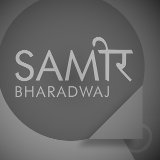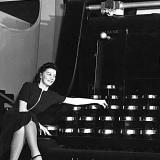
For writers, bookshops are a double-edged sword. On the one hand, you were probably first inspired to have writing ambitions somewhere in a bookshop, surrounded by the wonder of words; On the other hand, bookshops and the books in them can be the greatest obstacle to writing that was ever conceived.
I am often asked by people much better read than me, whether I have read their favourites from the recommended reading list, be it a Victorian classic or a modern fantasy marvel. More often than not, I haven’t read them, because I never followed the recommended reading lists and because I simply haven’t had the time. Think about it, the most common sort of book, the novel, is hundreds of years old. Many of its classic examples are from the early decades of its existence, but ever since then that list of recommended novels has been growing every year. There are the popular but well regraded yarns, there are the much awarded and much lauded brilliances, and there are the cult favourites that grow in popularity with time and discussion. All these are recommended, and with time, it becomes more and more impossible to read even a minor selection of them, if you wish to do anything in life besides read. That’s not even considering the other forms of book in both fiction and non-fiction.
Obviously, doing nothing but reading in life is a possibility, either as off-hours entertainment or as your work, if you’re one of those few people who worked their way into the position of a book reviewer or other commentator on literature. On some days it might be a chore, but on most days you are doing what you love for a living. If you are a writer and not just a reader, however, losing yourself in the created world of others is not a healthy option for your craft. For a writer, reading is an education but education is also the easiest form of procrastination, especially when it comes as easily as to a writer.
When I walk through the doors of a large bookshop, especially one with a sprawling fiction section, with its multiple aisles of carefully segregated genres and wonderfully balanced stacks of best-sellers, I am at once overwhelmed and also taken over by a form of book-lust. Those among you who would consciously admit to your bibliophilia will know what I am talking about. For that moment, you are utterly consumed by an impulse to read absolutely everything in front of you and posses every beautiful edition of every middling piece of franchise fantasy, because you are besotted and that is how lust works. Then your rationality kicks in, to some extent, and you resolve to not give in completely to your impulses. You lose yourself among the sweet smelling aisles and you come out either victorious against the overwhelming paperback hordes, or having come to a respectable compromise between your spending money and your book lust.
Respectable compromises are a relative and varied thing. I know many people who likely dispose most of their disposable income on books, and quite random ones at that. Not necessarily good ones or memorable ones or collector’s editions or special editions, just any books. They are addicted to reading. They’re reading all the time, every day of he week, every hour of the day, and when they’re not, they’re either pretending to work at a job or bragging in various social circles about all the books they just read.
Some of them even have ambitions as writers. I understand the feeling completely, they would be writing right now, but they really need to read more to hone their craft, to absorb the techniques of the masters, to ridicule the foibles of the literary quacks, to criticise the uneven sentence formation of the popular authors with their long-running book series and their populist fan followings. They need to learn more and then their masterpieces will be written. I know that most of them will never write.
No one ever became a master chef by eating a lot and doing little else. No one became a magician of culinary flavours by only analysing the preparations of others and never crying over an onion. The only way to learn how to write, to write well, and maybe even become a “writer”, if you must, is to write, and the more you read without control, the less that is likely to ever happen.
Sure you can fool yourself into lauding your continuing education in the craft of the written word, but all you’re learning to do is read, if that. Writing is a whole different ball game and you know it. You know why there are so many mediocre writers out there who are published in glossy paper backs so that you can question their intelligence and their literary merit? Because they’re the only ones who bothered to show up everyday, write, and finish their manuscripts. The rest of you literary geniuses were too busy raiding bookshops, obsessing over thematic inconsistencies, and arguing the pros and cons of race and gender archetypes in genre fiction.
In writing, as in every creative field, there is a fairly strict divide between the two sides of the realm: there are the creators and the consumers. The creators might start off as consumers and continue to be consumers at a very limited and discerning level, but the real consumers always remain consumers and do nothing else. To write, you have to make that transition from being a consumer to being a creator. You have to build up your skills and more importantly your confidence to put your effort where your mouth is and do the work. Reading all the books in the world and being able to spot grammatical niggles at twenty paces will make you a very good consumer, a very opinionated consumer even, but never a writer. A writer writes. A writer writes a lot, and consistently, and bravely, and against all odds, and against better judgement and many detractors.
Unfortunately, most of us choose to be detractors. It’s easier. It’s so much easier to tell someone what they’ve done wrong after spending a few hours with a book than it is to spend the few months or few years writing it, and revising it, and revising it again. It’s so much easier to read and read and imagine you are creating a better writer within than to write more and actual learn to write better. It’s so much easier to be a serial escapist, forever losing yourself in the next imaginary cocoon of someone else’s work, rather than to face the harsh reality of wrestling with words and sentences and beating them into submission, and seducing them into poetry. It’s so much easier to be a book lover and aspiring writer than to actually ever have the courage to write.
The next time you find yourself in one of those situations where you’re surrounded by the temptation of fresh, crisp, reading material, where the plump prose and the sensual covers call out to you to posses them and make them your own, hold back a second. Before you give in to your bookish instincts, decide on whether you want to write or you want to be a reader who forever deludes themselves with grand claims of wanting to be a writer. I can tell you categorically that wanting to be a writer is a lot easier, and a lot more glamorous in the mind. Writing on the other hand is hard work, a slow process, and what you write is guaranteed to be misunderstood or misinterpreted by everyone who reads it. But writing is better, because then you would have written, and you will have created, and you can let the other weaklings worry about your own seductions that call out to them from the shelves and trap unsuspecting readers in their embrace.
Samir
Liked this article? Please share it: ![]()
![]()
![]()
![]()
![]()
![]()


